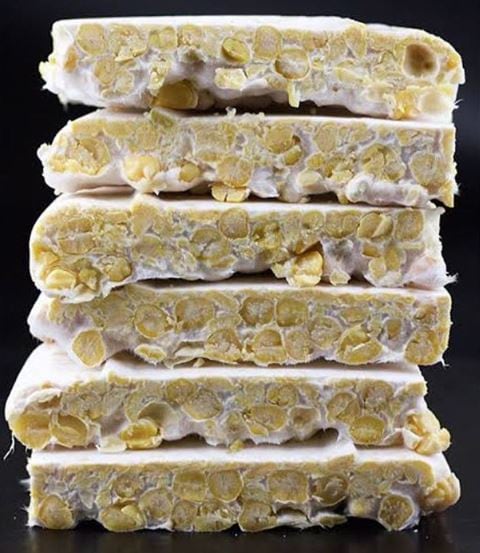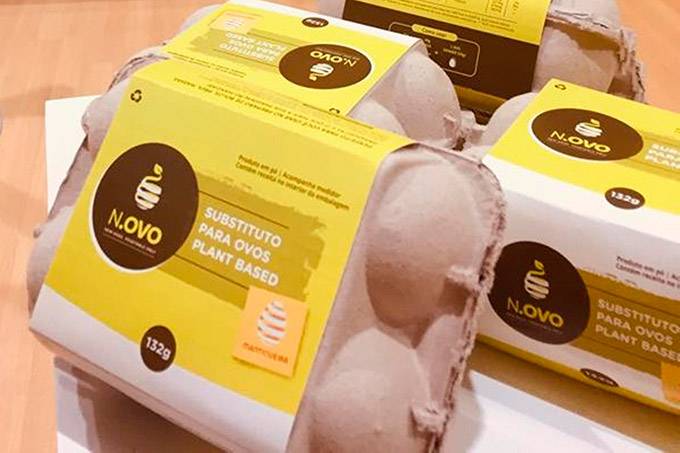Tempeh is made by mixing cooked legumes – soy is traditional but Mun also uses chickpeas, black-eyed beans and peas - with the starter culture Rhizopus oligosporus. This mix is fermented at 32 degrees for 22 hours, producing a plant-based protein that can then be prepared in dishes.
Boosted nutrition

Unlike tofu, which is made by adding a coagulant to liquid soy milk, tempeh ferments the whole, dehulled bean. This results in a texture with more ‘bite’ as well as retaining the fiber.
“You can take advantage of the full grain,” said Mun co-founder Thomas Hendee, who studied human biology at Stanford University and worked in IT before co-founding Mun Artesenal in Sao Paolo in 2015.
Hendee said the fermentation process increases bioavailability of the nutrients and makes it easier to digest.
Mun’s range of tempeh products are cooked by the consumer, which destroys the gut-friendly bacteria. However, the company does claim its products are fiber-rich prebiotics that support existing microbiota.
Proudly plant-based
The product range includes frozen tempeh made from soy; black-eyed beans and black rice; and pea and quinoa.
“There’s a trend right now for creating plant-based meat alternatives that simulate meat, and obviously we understand the market is way bigger for that type of product. But we really believe in not trying to imitate something people are trying to get away from. We really believe in […] tasting and appreciating this tradition that has existed for hundreds of years.”
It also makes marinated hamburger-style patties and an alternative to cured pepperoni (which it dubs 'temperoni') - products that are arguably more recognizable to Brazilian consumers. According to Hendee, tempeh is not well-known even among vegetarians in Brazil.
A hard sell in Brazil?
So is plant-based protein a hard sell in a country where the culture of eating meat is so firmly entrenched?
“Yes and no,” said Hendee.
“Culturally, of course, meat is everywhere but because it is so saturated, I think there are more people who are aware of how extreme it has become; Brazil is one of the countries that, per capita, consumes the most meat.”
Despite the barriers, Hendee is feeling bullish about the start-up’s future.
“There is no major producer of tempeh in Brazil, and we really believe in the nutritional benefits, the taste, and how practical, easy and versatile it is.”
Mun currently manufactures 900 kilos a month in over 30 cities across 13 different states in Brazil for more than 100 clients. Most of its business comes from foodservice channels and B2B customers although it also has a consumer-facing brand.
WATCH THE VIDEO TO FIND OUT MORE...



